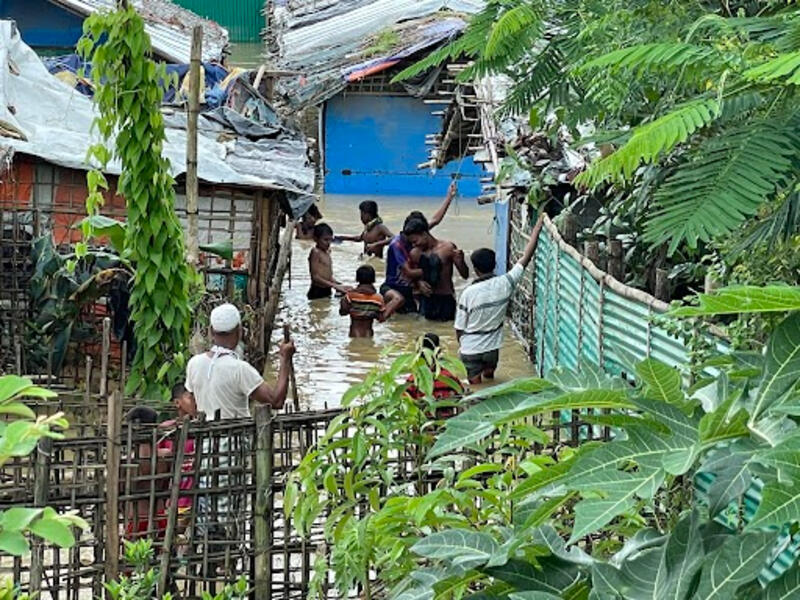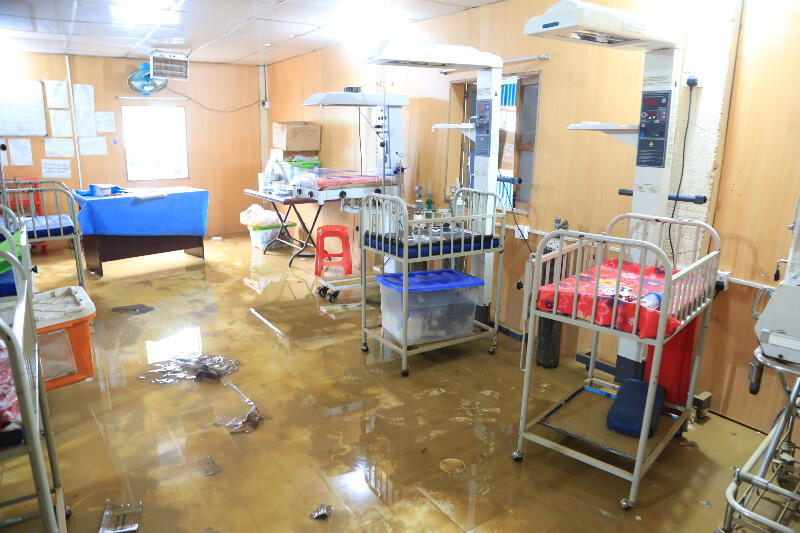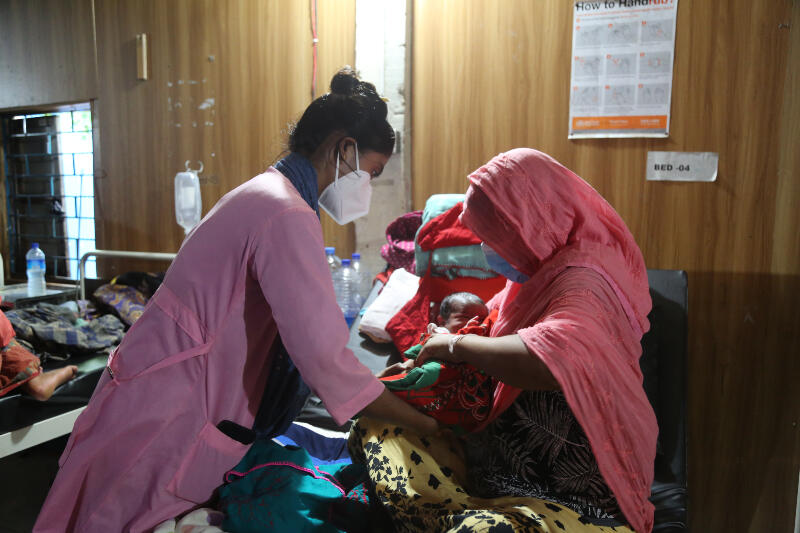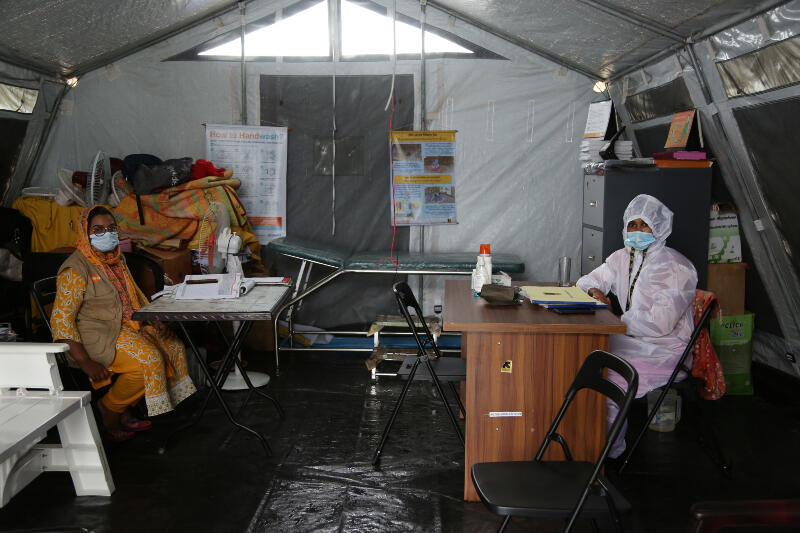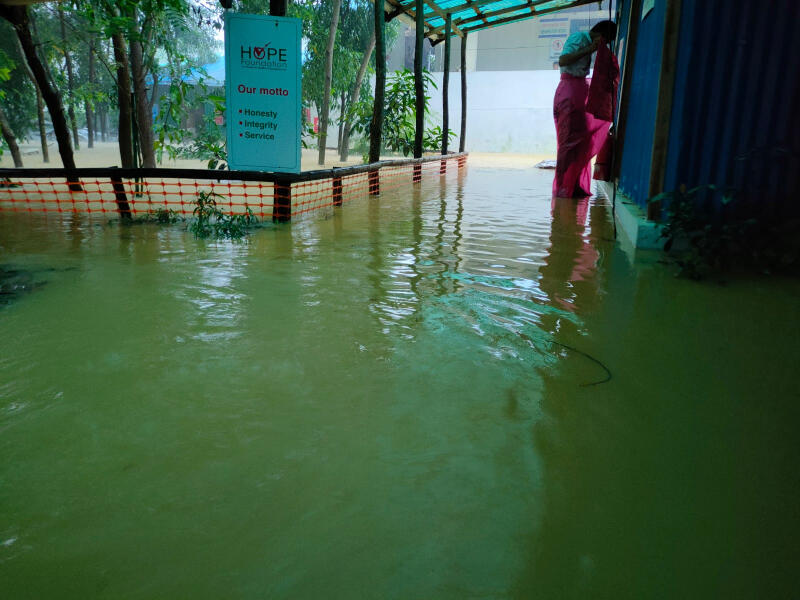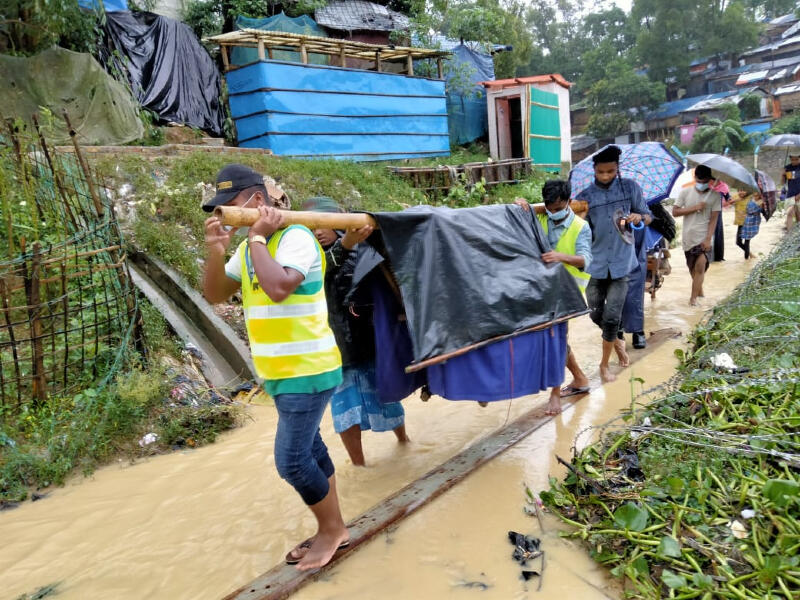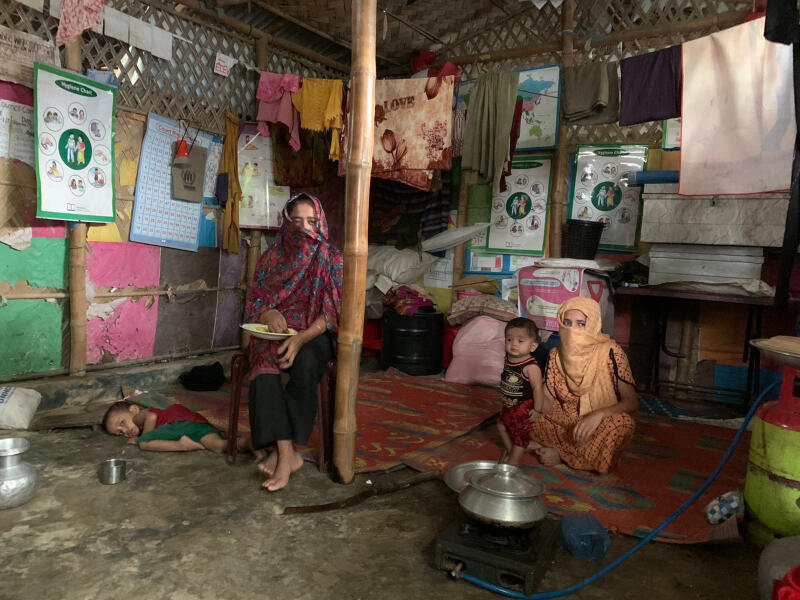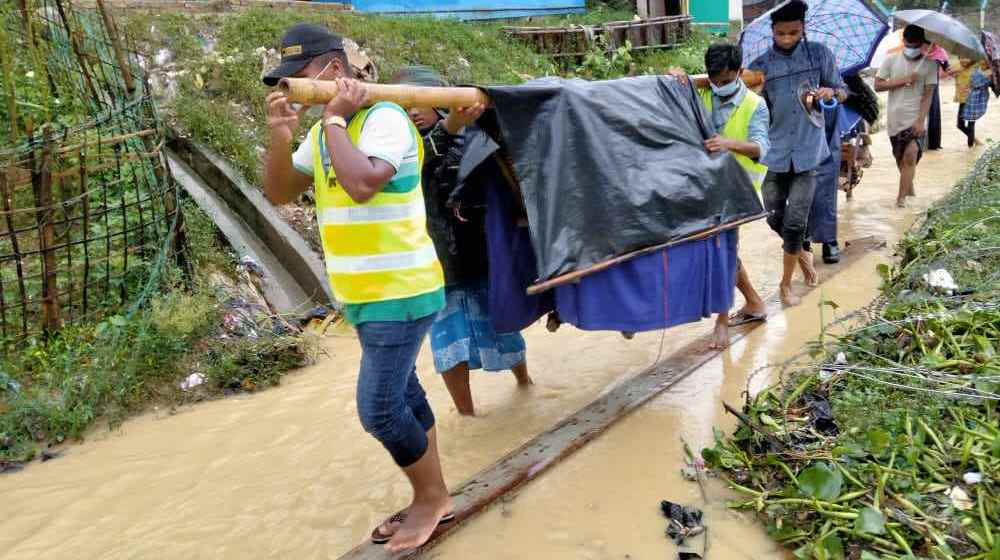English
Thematic Area
Date
Show Feature
Yes
Body
Torrential monsoon rains on July 26 and 27 flooded Rohingya camps in Cox's Bazar, Bangladesh, killing six, displacing more than 13,000 and destroying nearly 4,000 shelters. UNFPA is on the ground, supporting a field hospital for new mothers and their babies, providing sexual and reproductive health and rights services and distributing basic hygiene supplies.
Blurb
Torrential monsoon rains on July 26 and 27 flooded Rohingya camps in Cox's Bazar, killing six, displacing more than 13,000 and destroying nearly 4,000 shelters.
Publish on home
Yes
Workflow State
Published
